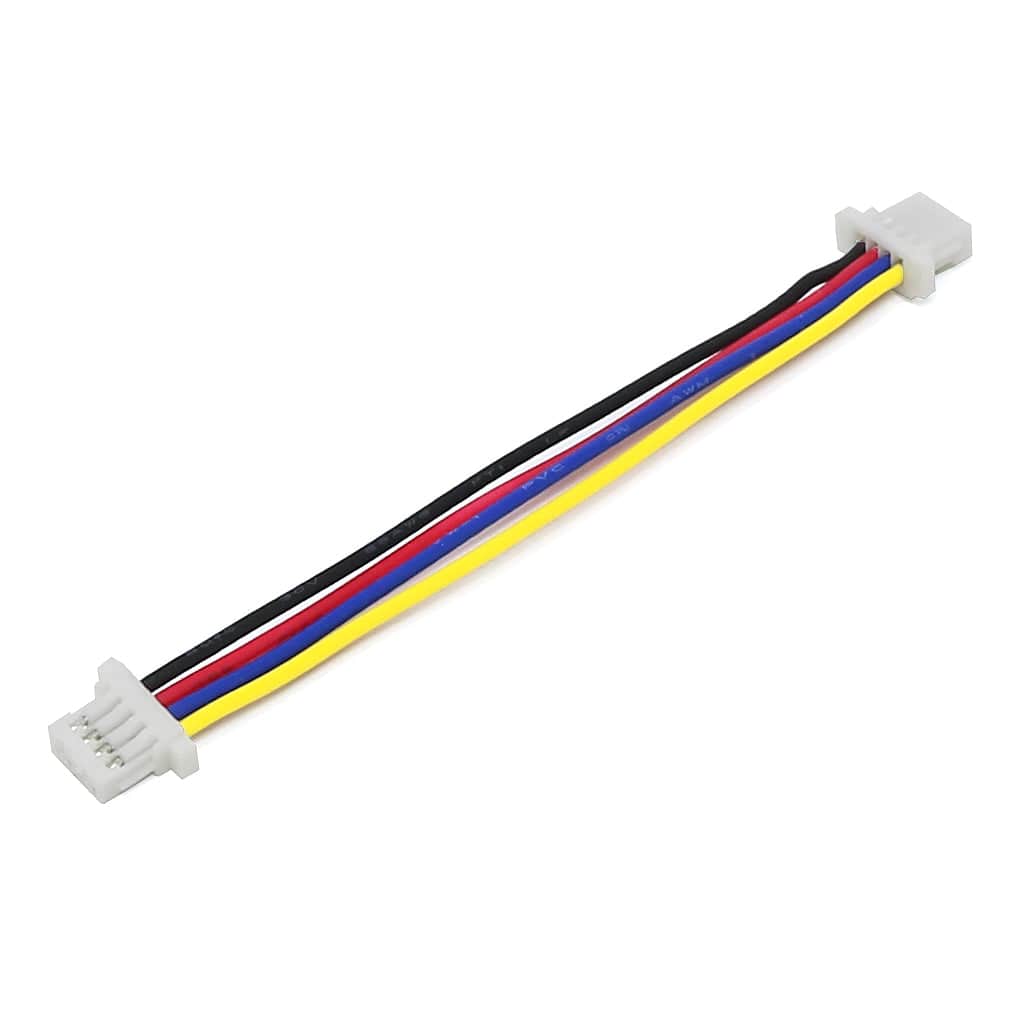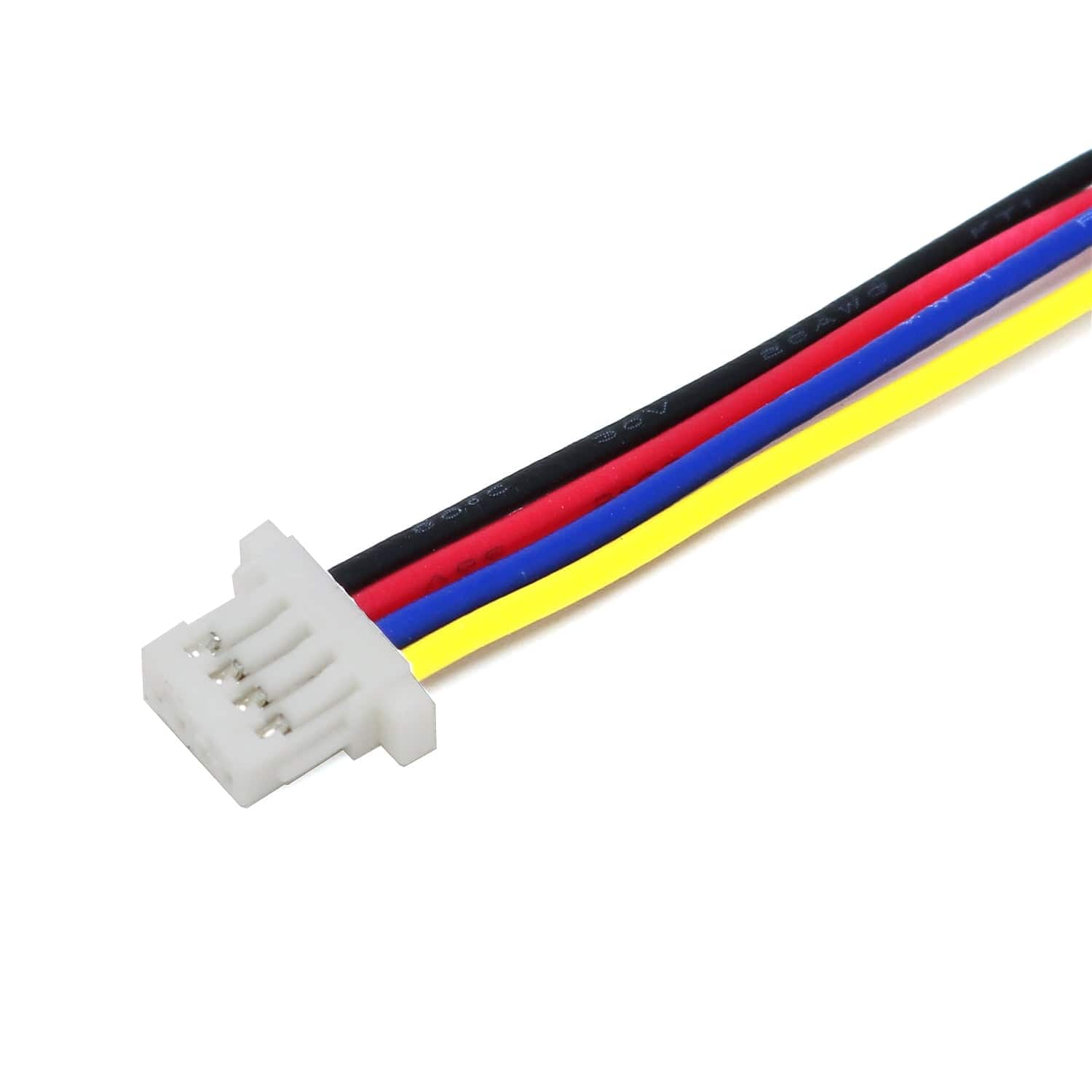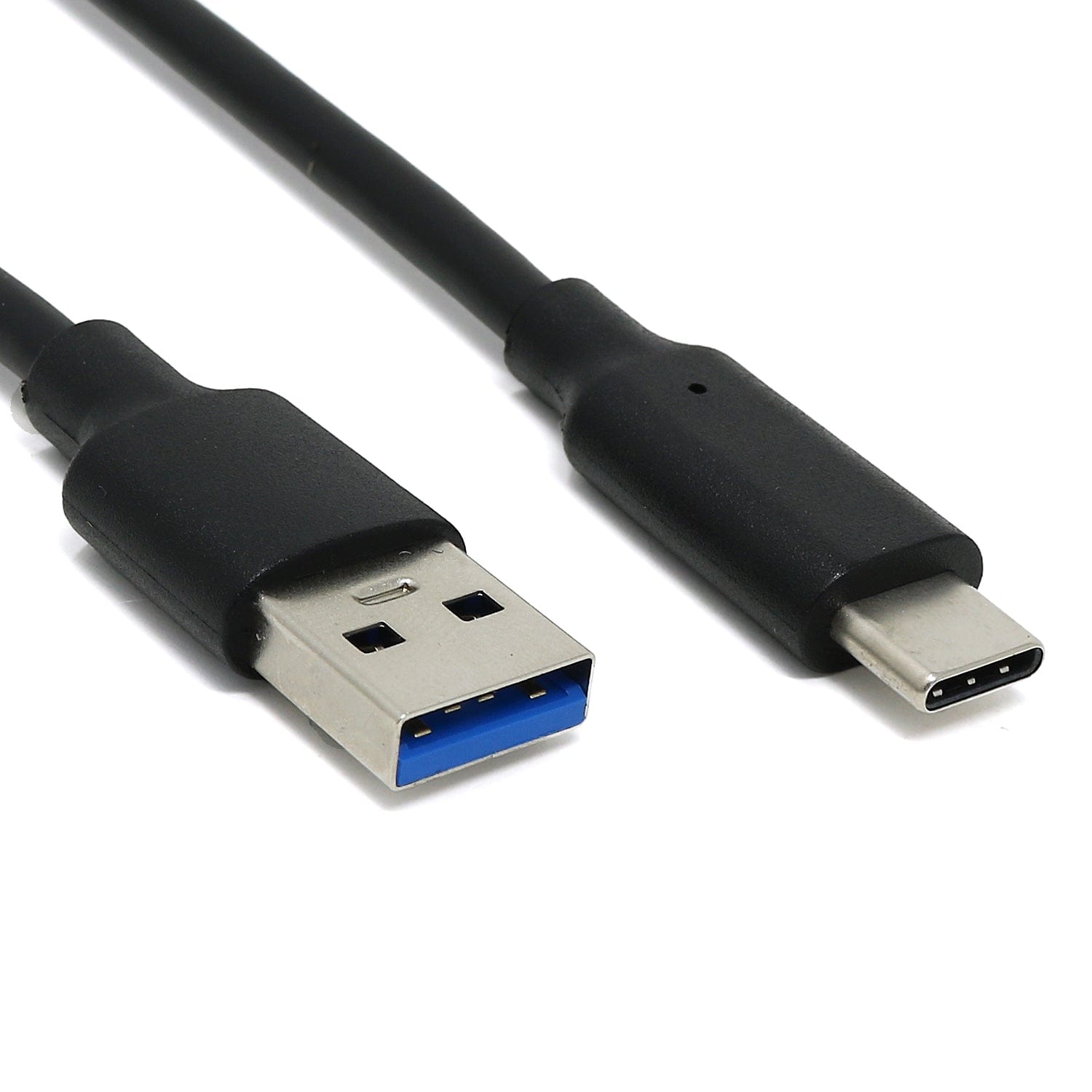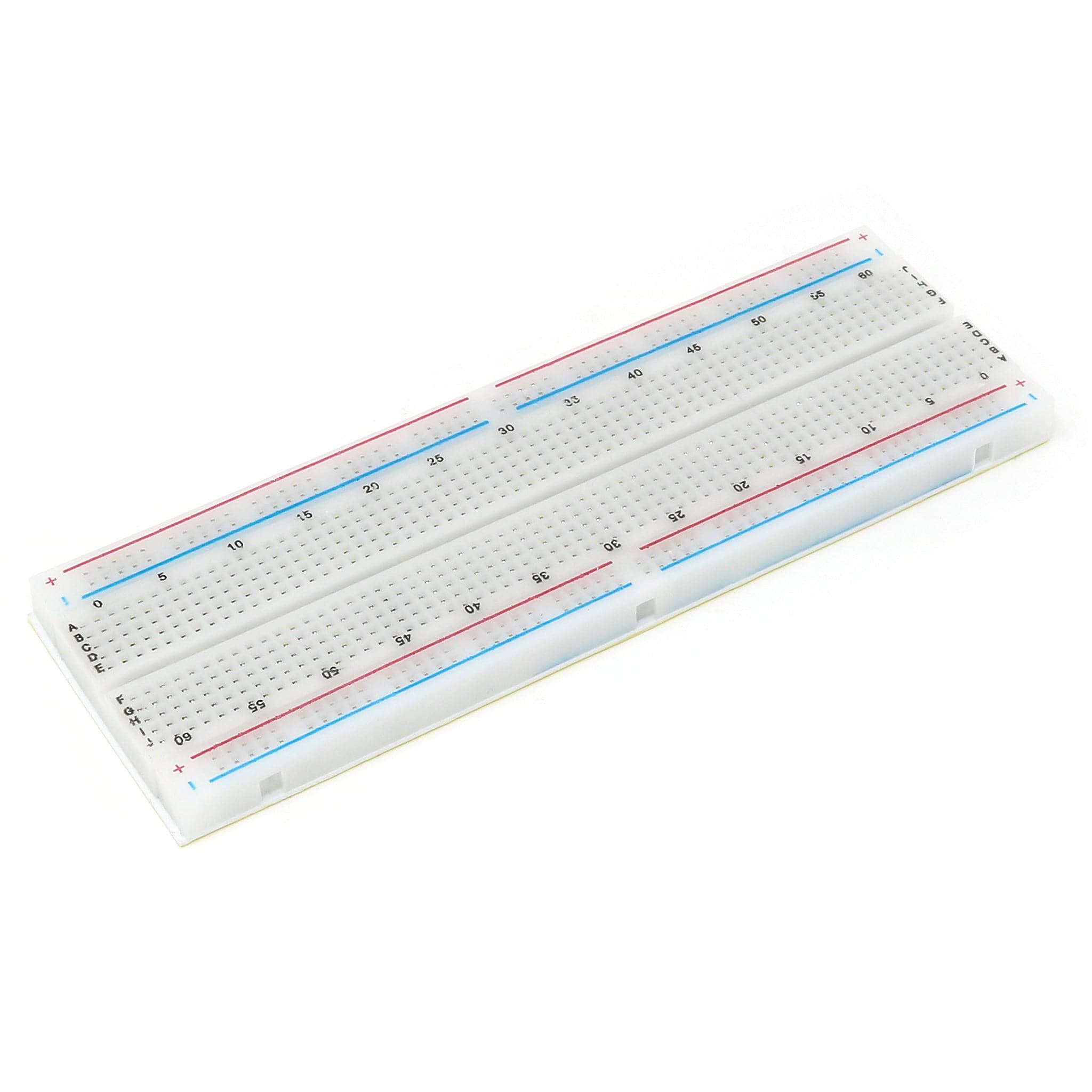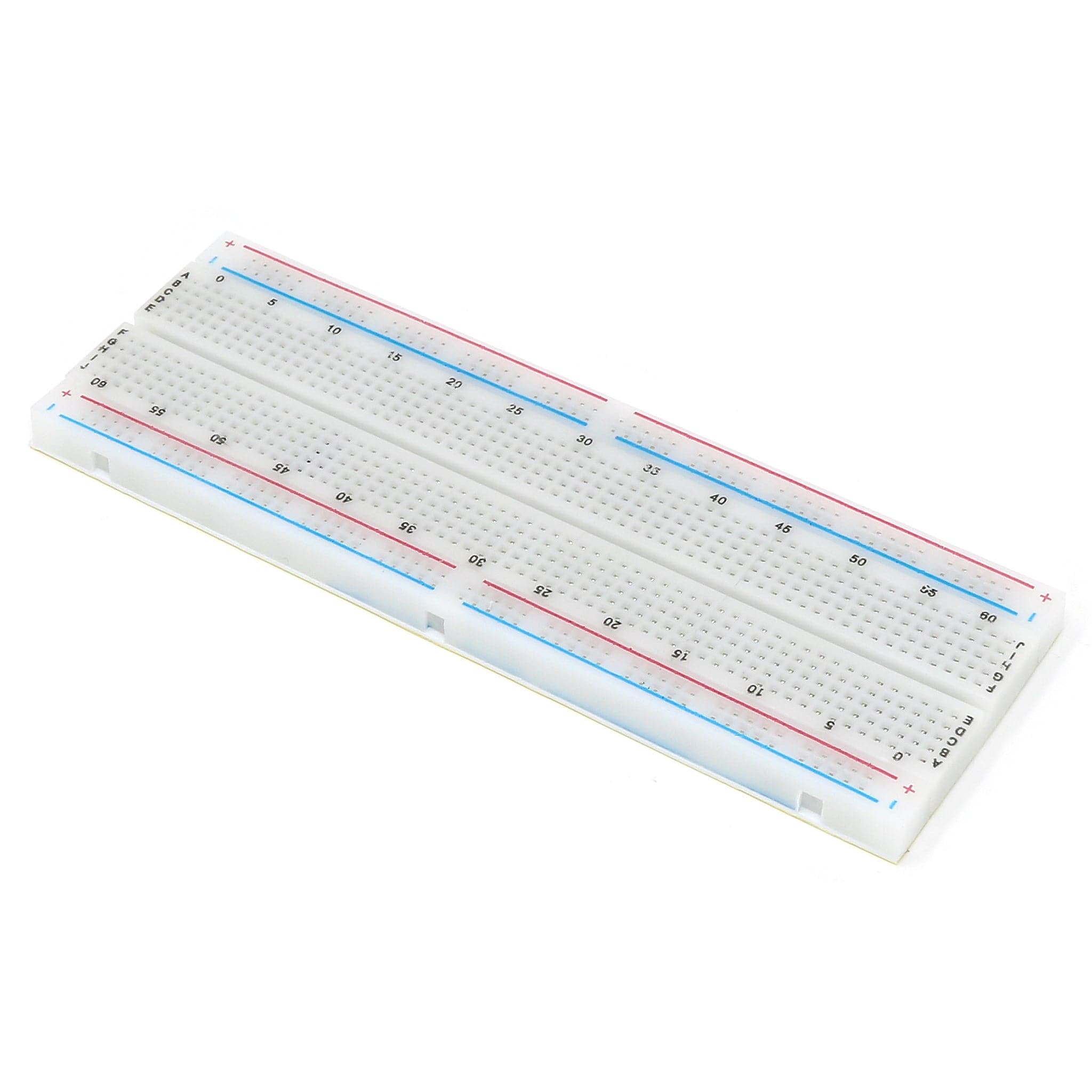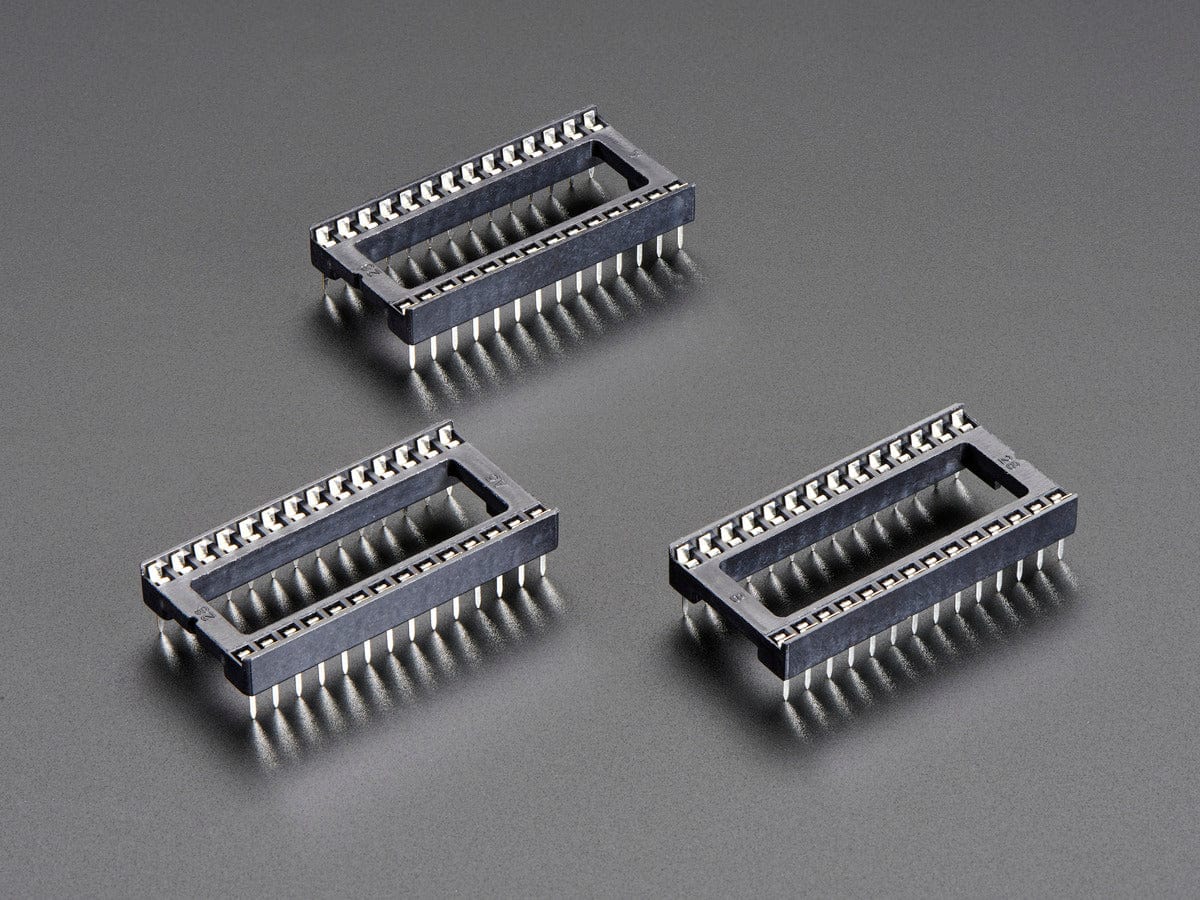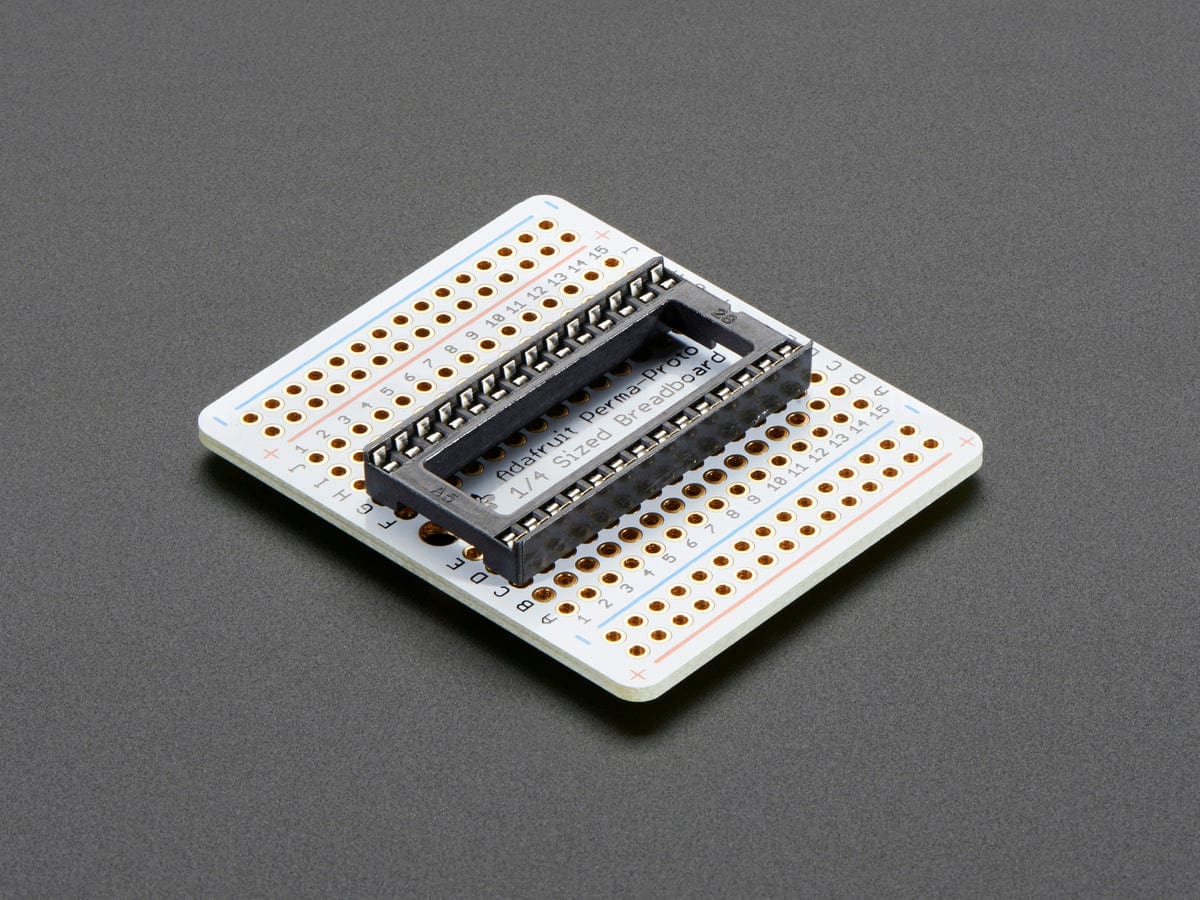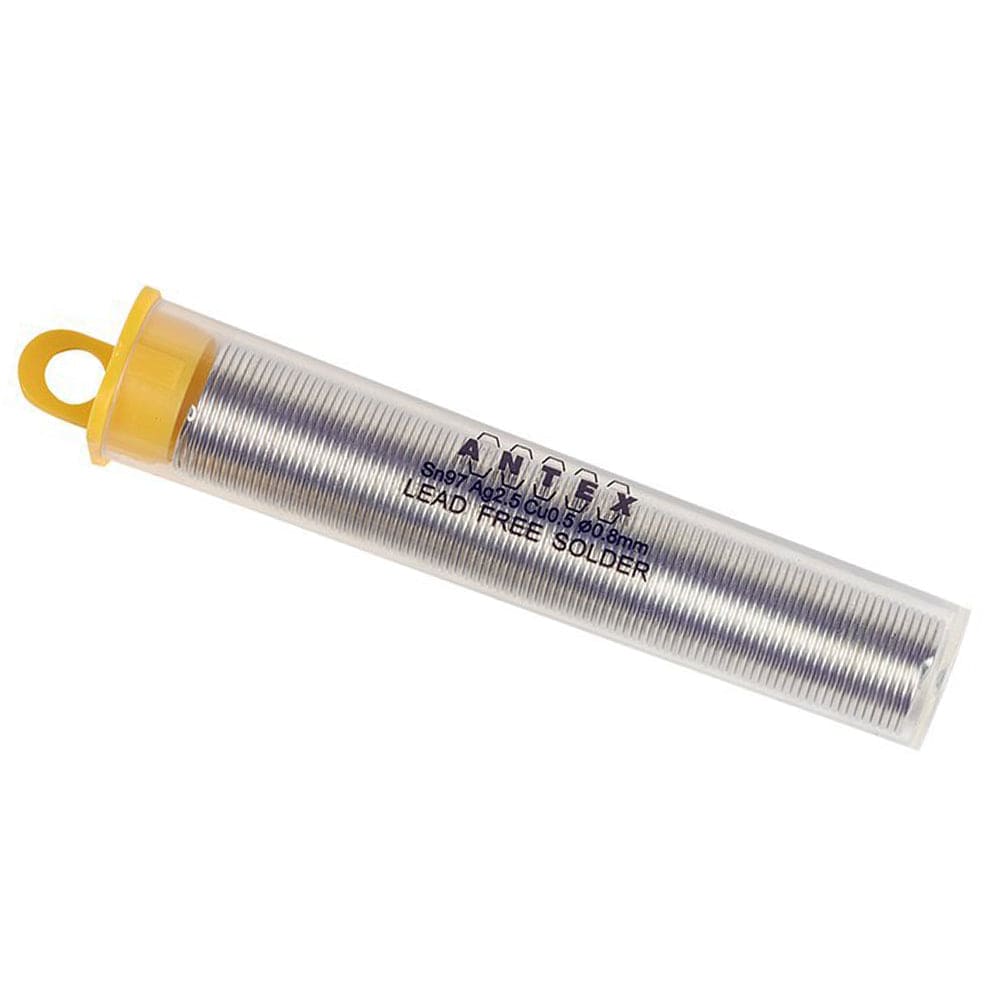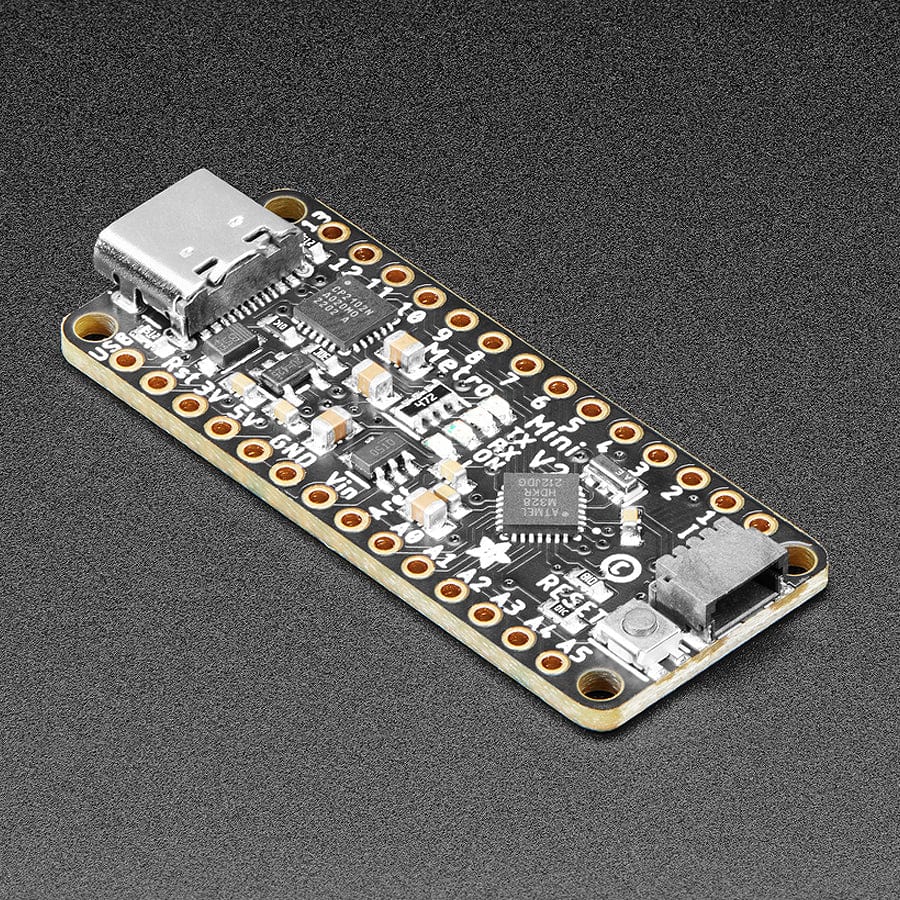
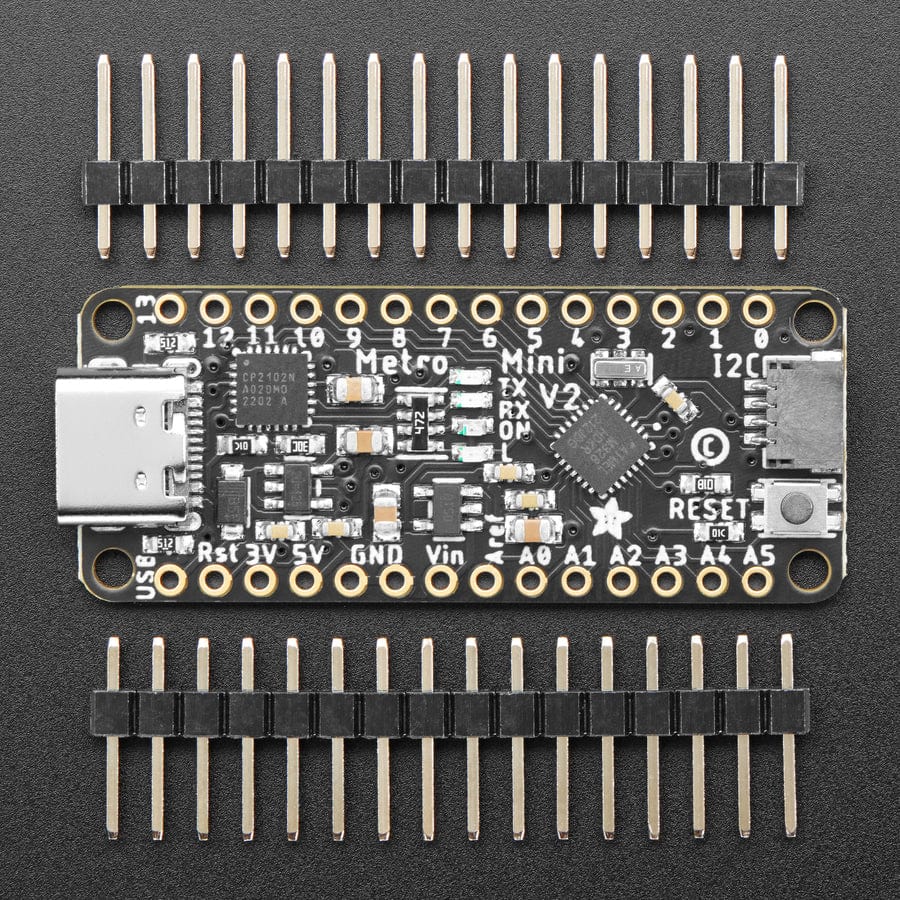
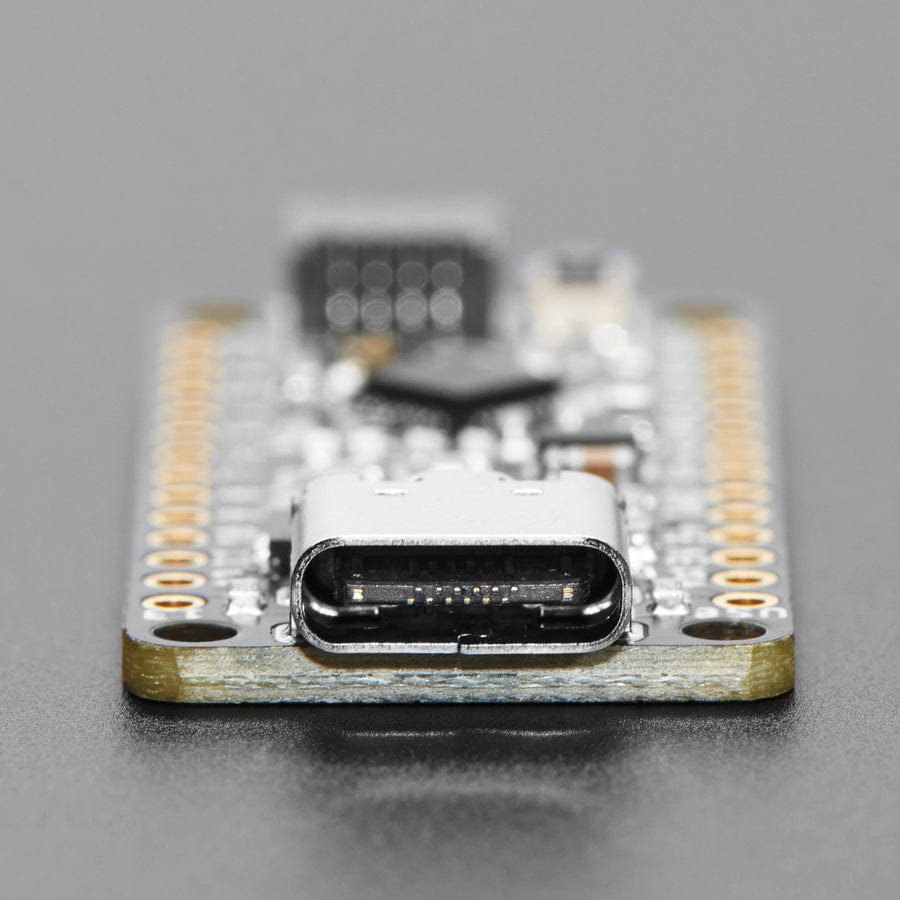
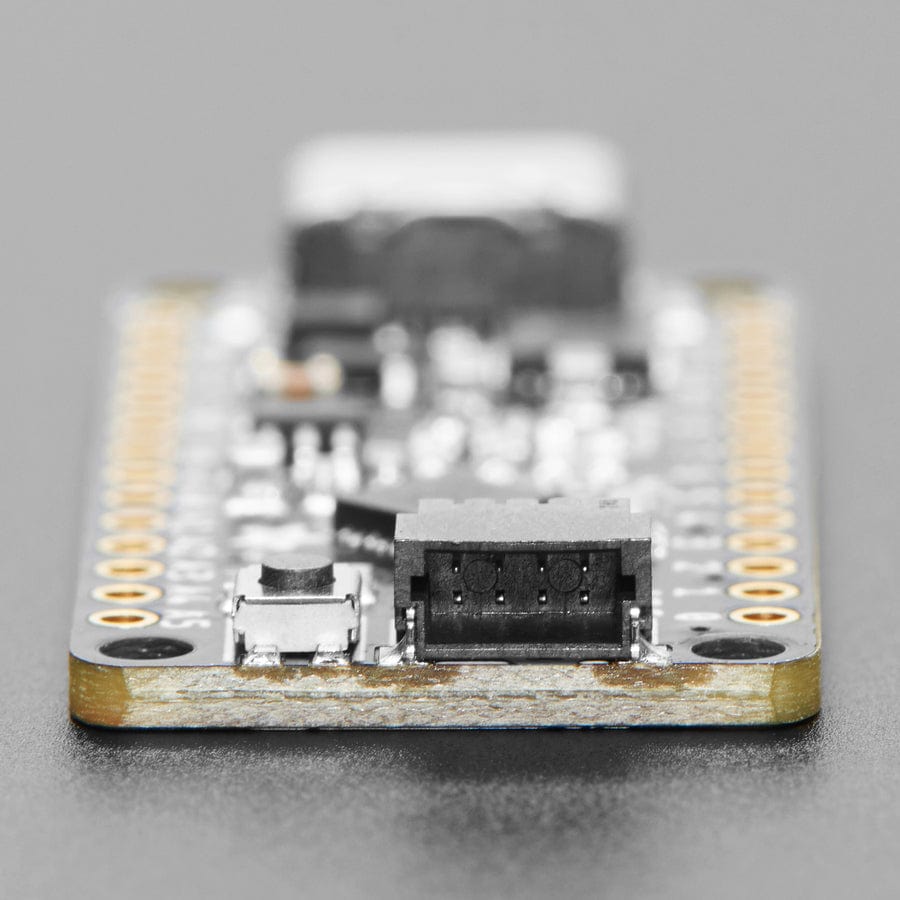
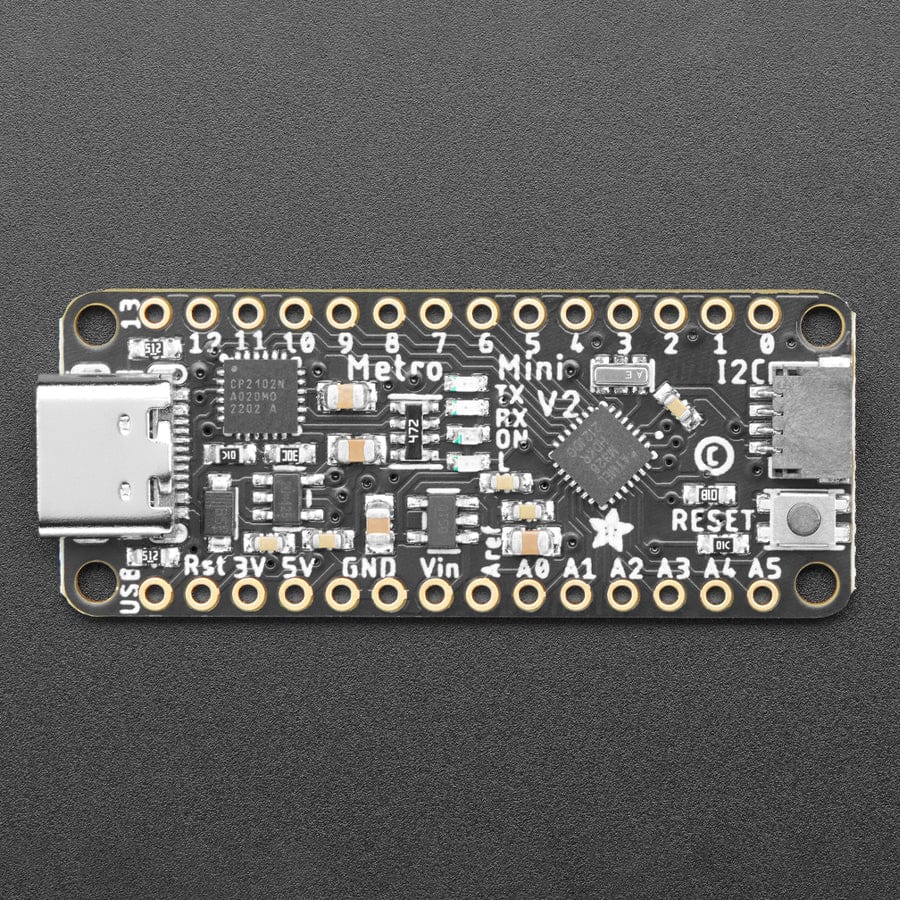
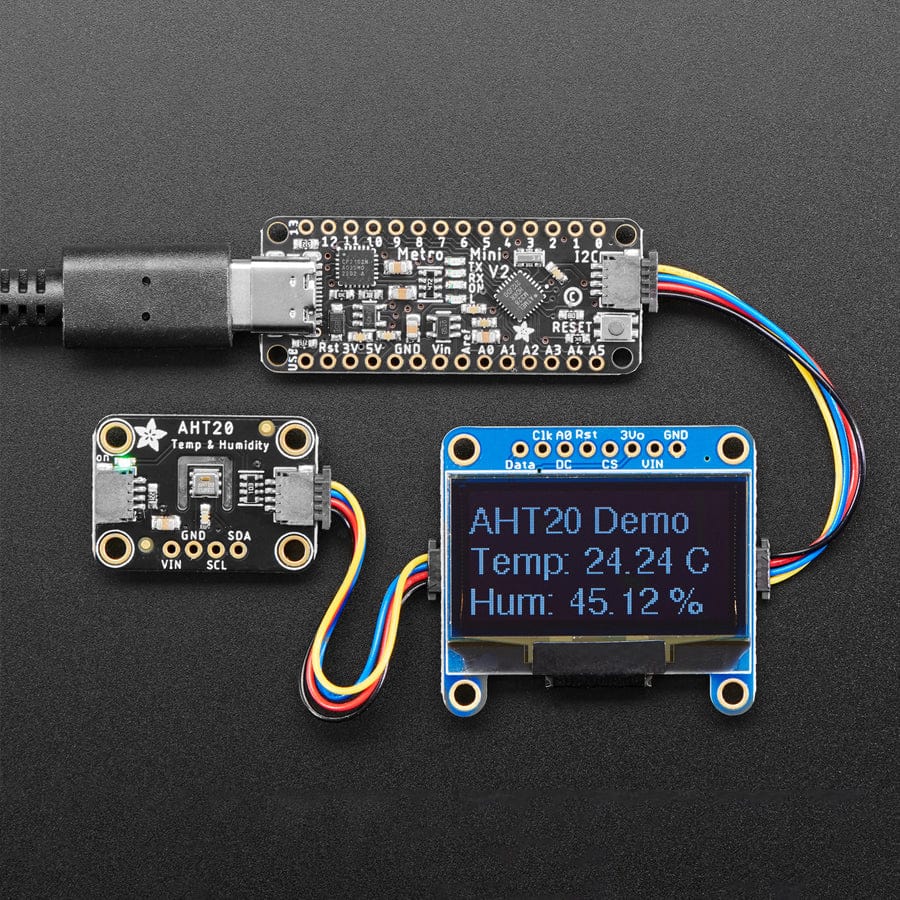
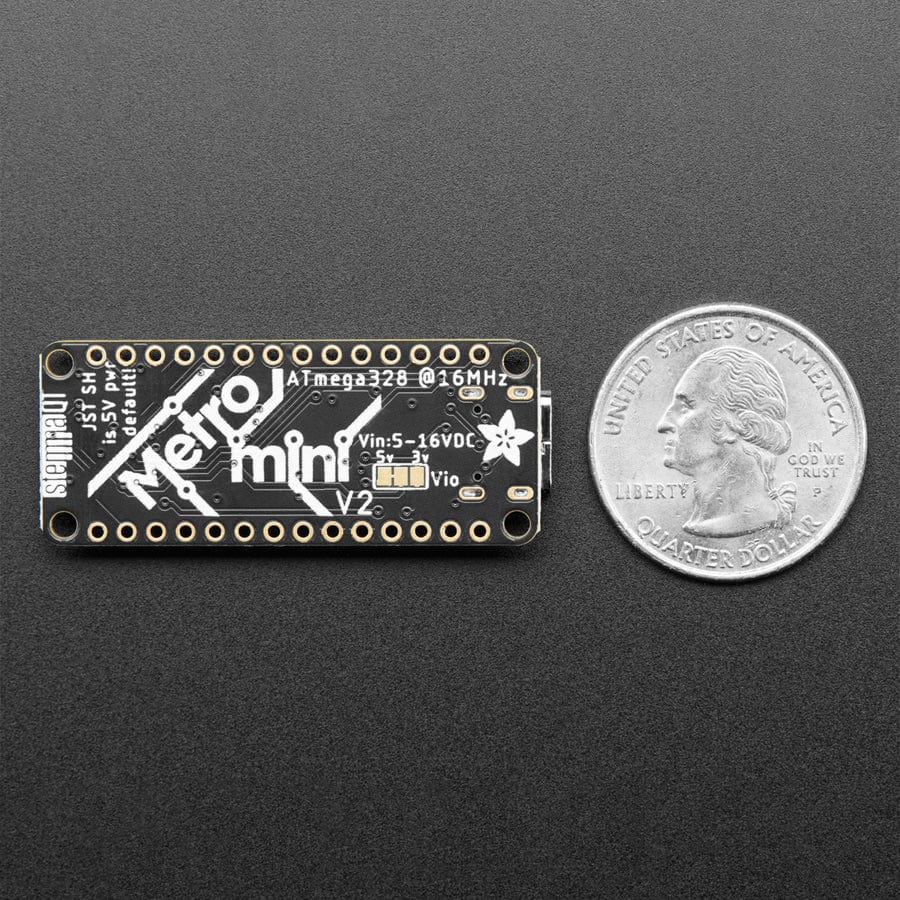
Login / Signup
Cart
Your cart is empty
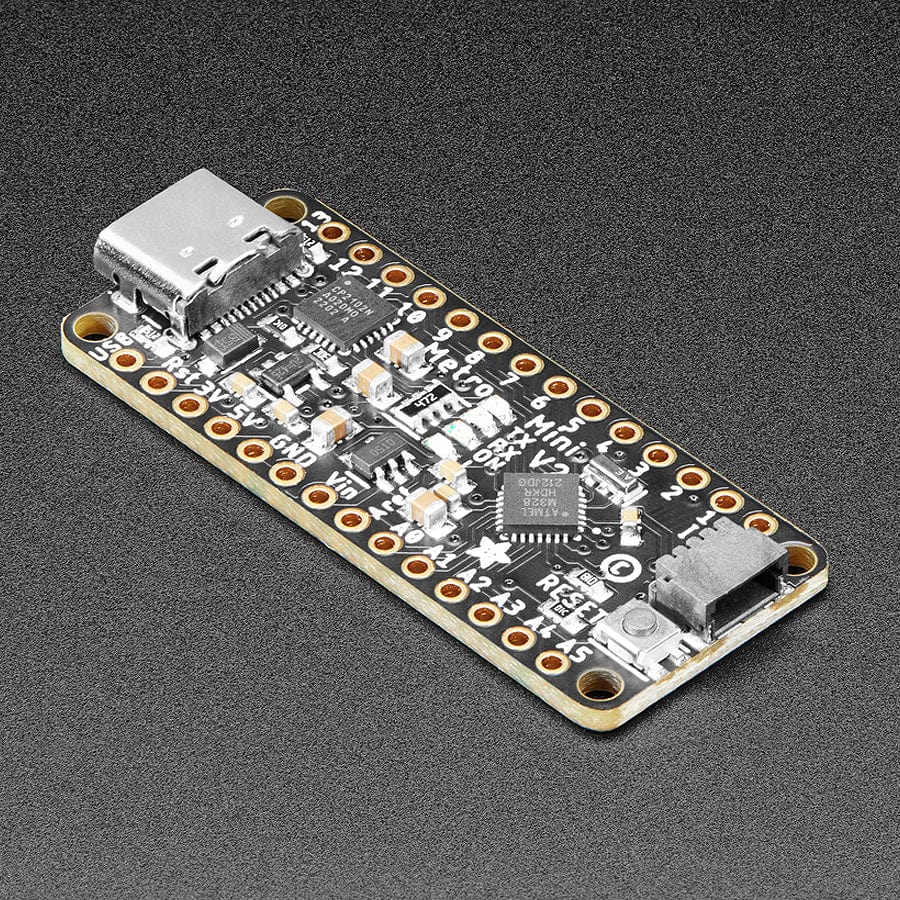
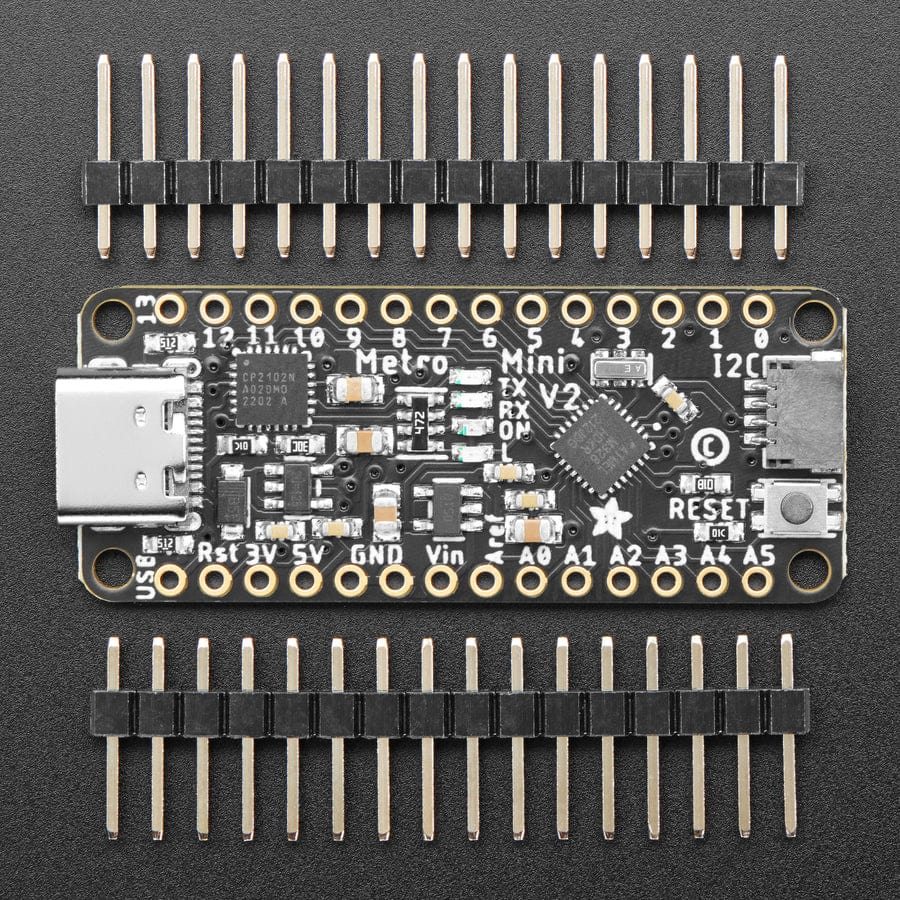
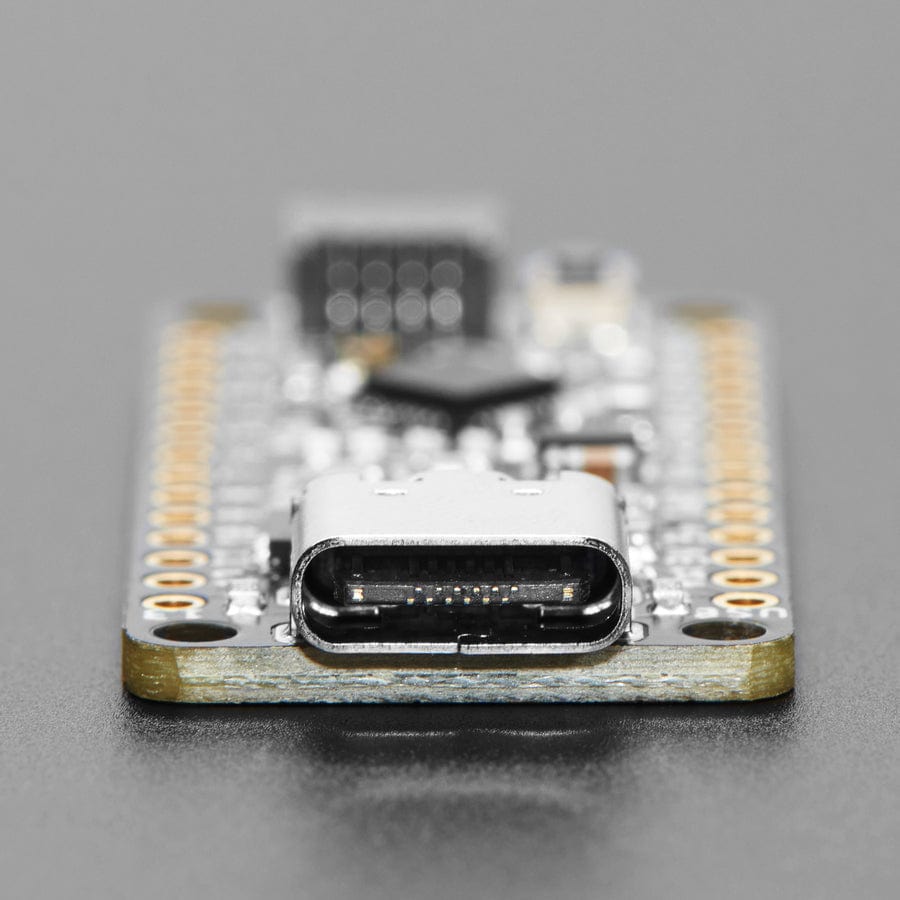
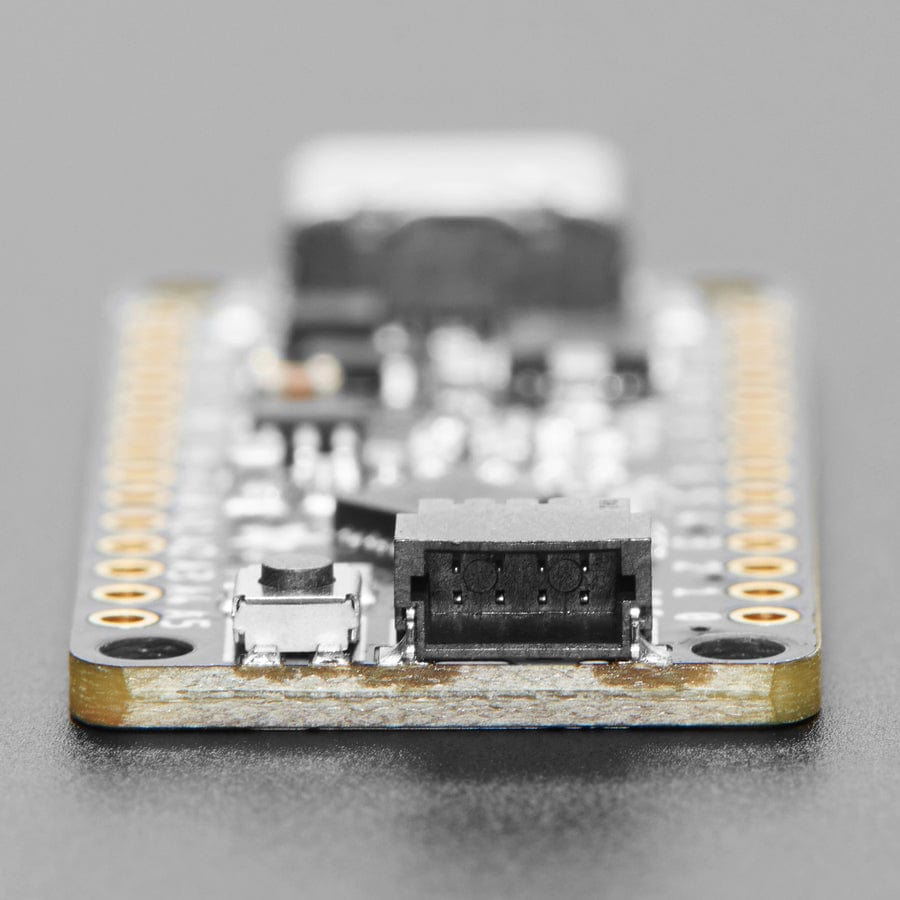
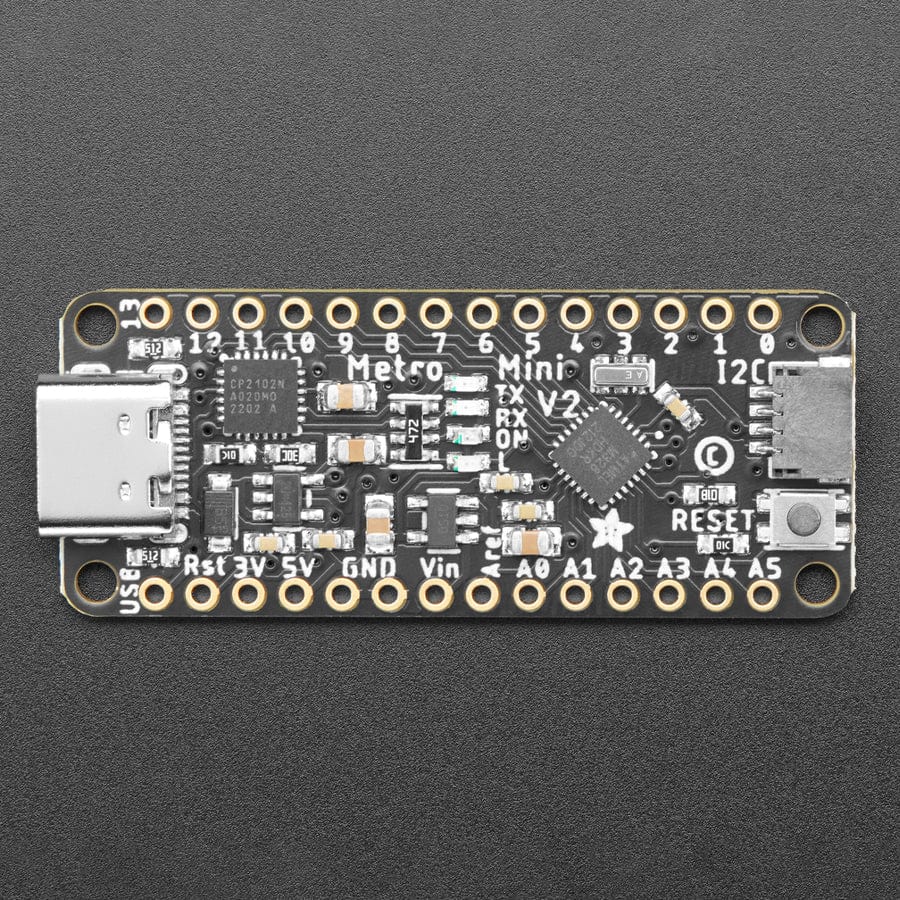
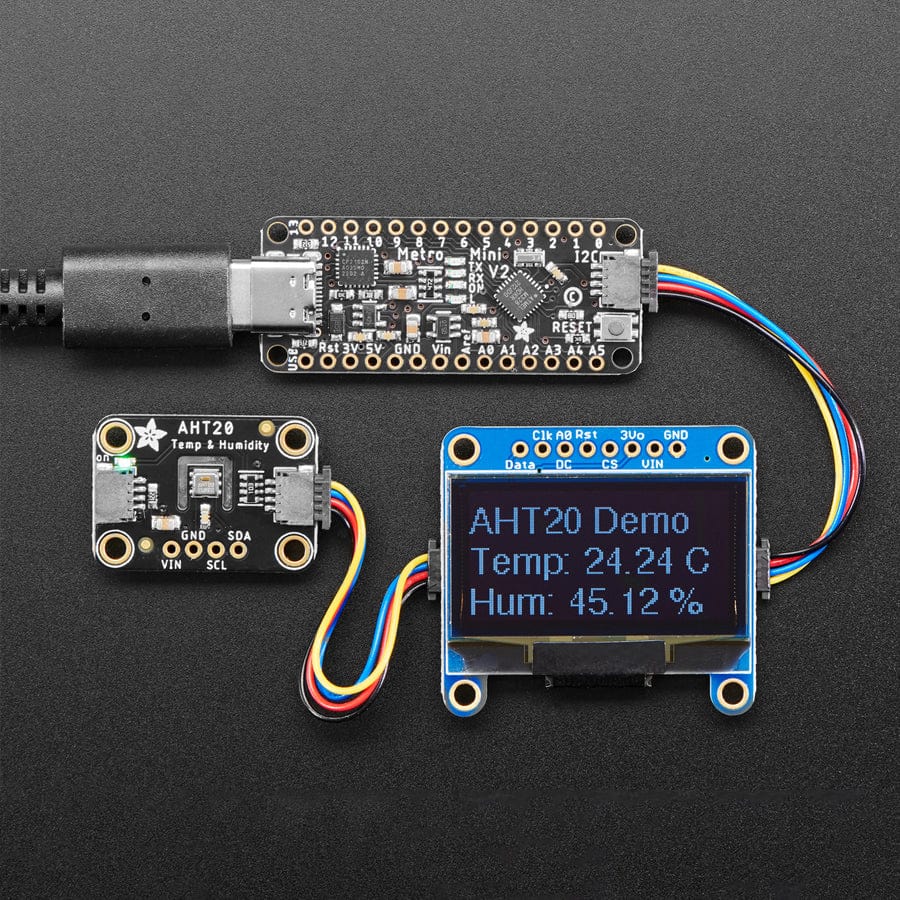
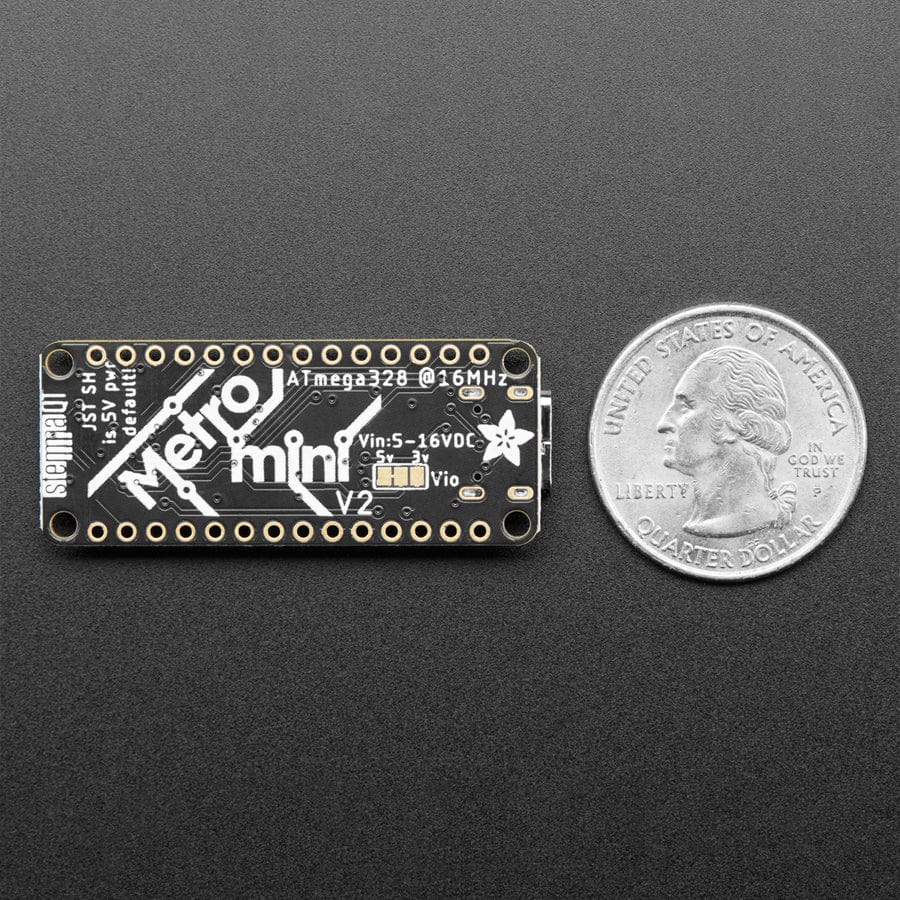
One of our star development boards is the Adafruit METRO Mini 328, an excellent lil' fellow that lets you make your Arduino-based project tiny. Recently we had to redesign this board to move from the obsolete CP2104 to the available CP2102N and one thing led to another and before you know it we made a completely refreshed design: the Adafruit METRO Mini 328 V2.
The V2 is a significant redesign, enough so we consider it a completely new product. It still features the ATmega328 chip but has many upgrades and improvements:
The METRO Mini V2 works great with the Arduino IDE, and runs the ATmega328P at 16MHz so it is pin-compatible with Arduino UNO R3 - note you won't be able to plug in shields, but great for use with breadboards. You can use this with the Arduino IDE (both desktop and cloud version) by selecting 'Arduino UNO' in the Boards menu.
We sure love the ATmega328 here at Adafruit, and we use them a lot for our own projects. The processor has plenty of GPIO, Analog inputs, hardware UART SPI and I2C, timers, and PWM galore - just enough for most simple projects. When we need to go really small, we use a QT Py, but if you want to have USB-to-Serial built in and lots of GPIO, we reach for an Adafruit METRO Mini V2.
METRO Mini V2 is the culmination of years of playing with AVRs: we wanted to make a tiny, breadboard-friendly development board that is easy to use and has a STEMMA QT port for plug-and-play support with hundreds of devices. Metro Mini can be programmed with the Arduino IDE (select 'UNO' in the boards dropdown)
The Metro Mini comes as a fully assembled and tested board, with bootloader burned in and also some 0.1" header. Some light soldering is required if you'd like to plug it into a breadboard, or you can solder wires or header directly to the breakout pads. Once headers are installed they can be fitted into 0.6" wide sockets
Mac & Windows People! Don't forget to grab the SiLabs CP210x drivers from SiLabs to make the COM/Serial port show up right... The default OS drivers may not support the interface chip








